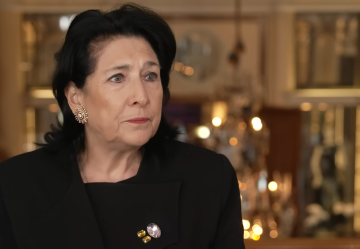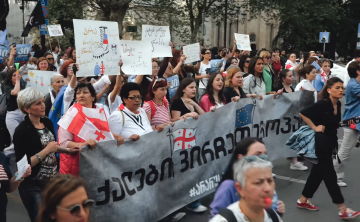Widespread violations, allegations of falsifications, and mass protests signal potential challenging times for Georgia.
According to CEPA, the voting results have resonated not only within Georgia but also on the international stage, as the possible victory of the pro-Russian party "Georgian Dream" threatens to further steer the country away from its Western-oriented path.

Official data indicates that the ruling party secured 54% of the votes, while opposition parties managed to gather around 44%. However, these figures significantly diverge from the outcomes of two independent exit polls conducted by Western agencies, which suggested that the opposition held an advantage. This discrepancy has sparked outrage among voters who believe the ruling party distorted the election results.
Numerous pieces of evidence of likely falsifications have emerged on social media, including photos and videos of ballot stuffing and altercations at polling stations. Georgian President Salome Zurabishvili openly stated that the election results are a product of a "Russian special operation." The opposition has also made decisive statements, refusing to acknowledge the results and declaring a boycott of the new parliament.

Most analysts and experts note that this is yet another step by Russia towards undermining democratic institutions in post-Soviet countries. In addition to the political crisis, Georgia is facing social upheavals: numerous demonstrations planned for the end of October aim to demand a fair recount of votes and annulment of the disputed results.
If the authorities continue to ignore the demands of the opposition and society, the country may face a new wave of protests that could escalate into a prolonged political crisis.
Source: cepa.